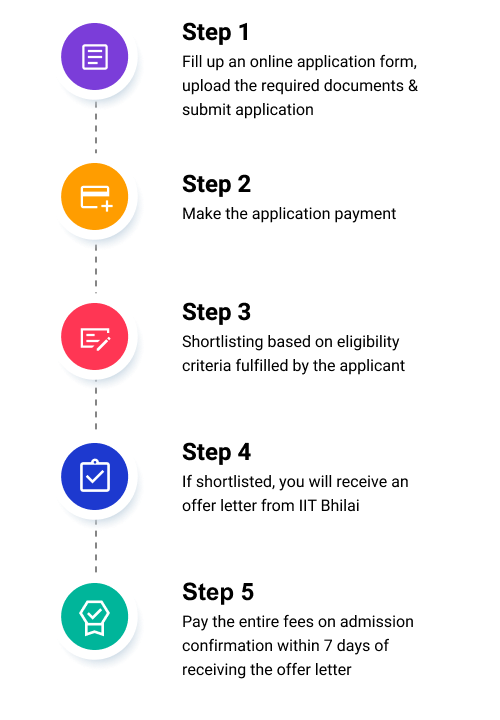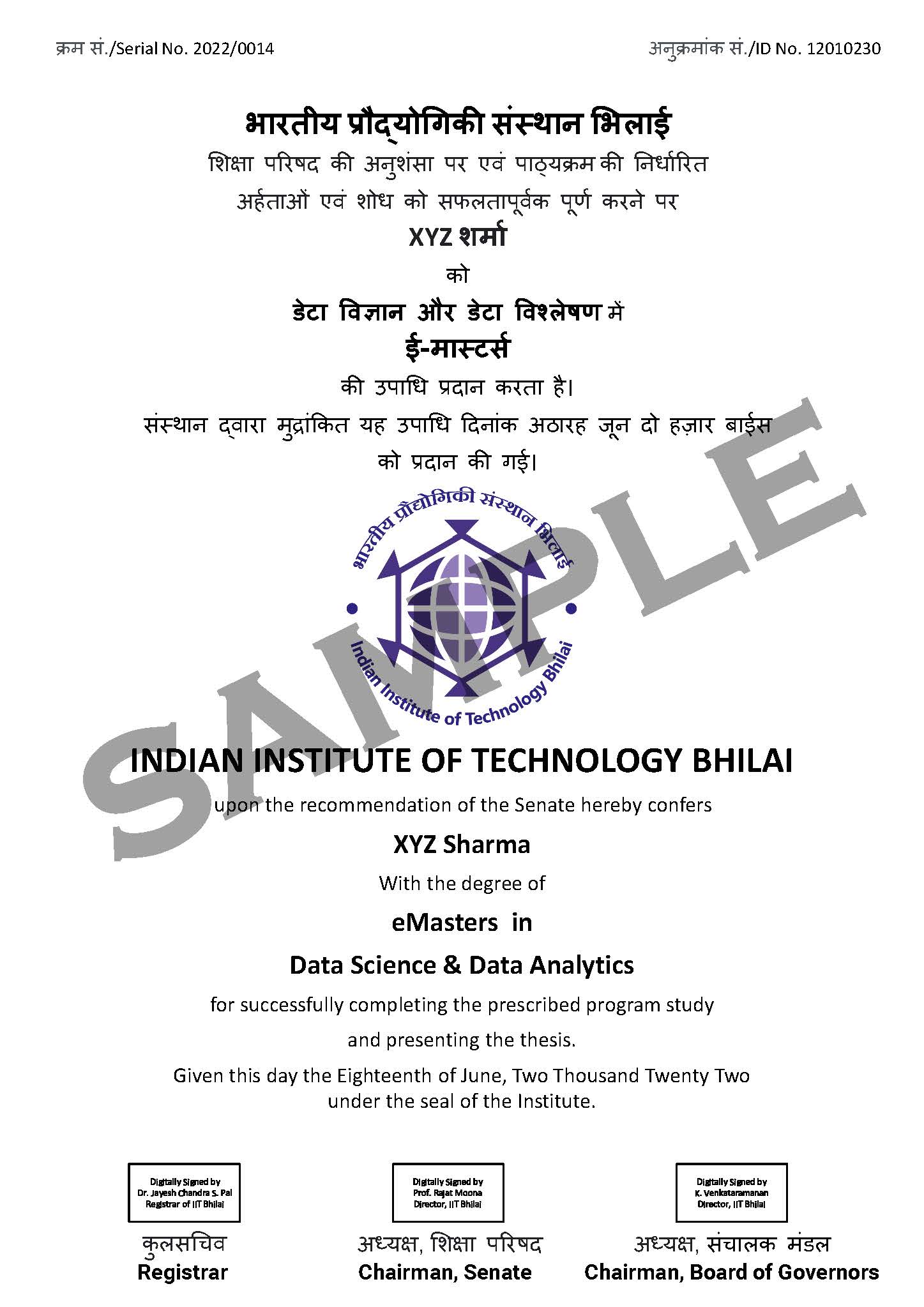Duration:
Duration of the program will be
2
calendar years/ min. 4
semesters.
Maximum duration: 3 calendar
years/ 6
semesters.
Eligibility:
Should be a working professional
with at least two (2) years of
experience.
Should have B.Tech/ BE/ M.Tech/
MSc
(4 Semester Program)/ MCA (4
Semester Program)/ MS Degree
(min. 4 Semester
Program).
In
the qualifying degree at least
55
percent marks or equivalent 5.5
CGPA/CPI must be there. In case
of the
candidate belonging to SC, ST,
or Persons with Disability (PwD)
category,
this is relaxed to 50% or
equivalent 5.0 CGPA/CPI. For
MCA/MSC passed
graduates, the percentage score
of MCA/MSC would be considered.
For BE/BTech
Engineering graduates without PG
specialization, the percentage
score of the
undergraduate degree would be
considered. For a post
graduation in the
Engineering field of study, PG
score qualification can be
considered.
Selection process will be
scheduled
post counseling & application
process, depending on the number
of eligible
applications as per seat
availability for the program.
This entire process
will be online.
The applicants can be working
professionals as well as
non-working
students with fresh degrees
depending on
the course.


 Vishwas Rathi
Vishwas Rathi

 Santosh Singh
Rathore
Santosh Singh
Rathore  Padmalochan Bera
Padmalochan Bera
 Manish Kumar
Manish Kumar 

